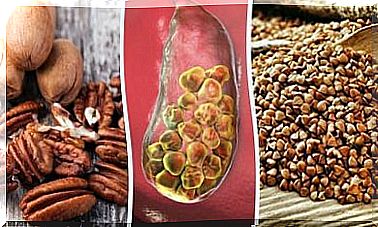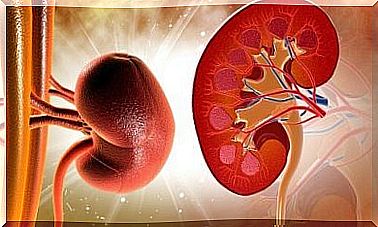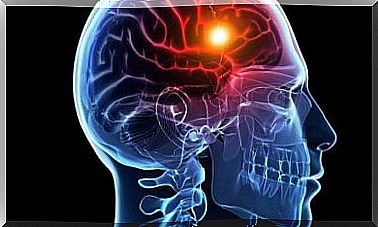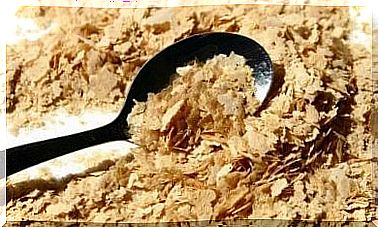What Is Peristalsis And How Does It Work?
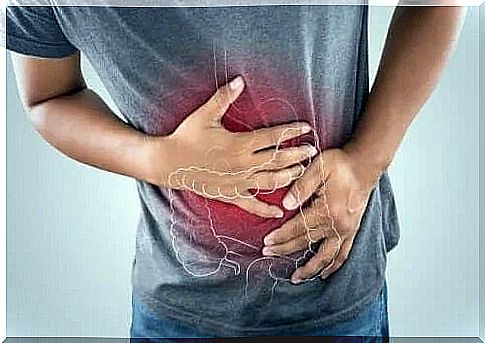
What is peristalsis and how does it work?
When the brain becomes aware of the presence of food in the digestive tract, it sends commands to the smooth muscles of the organs involved to perform certain movements. These movements generate the transport of food from the mouth to the anus.
The same mechanism applies to the urinary system. When the brain detects the presence of urine produced by the kidneys, it sends information so that the ureters carry it to the bladder through peristalsis.
Thus, we can say that peristalsis has three main functions:
- Propulsion of food into the digestive tract
- Biliary circulation in the liver, which is part of the digestive system
- Transfer of urine to the urinary tract
The stages of peristalsis
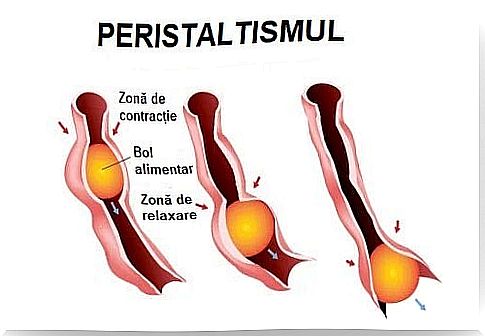
Peristalsis manifests itself rhythmically and organized. After the food enters the mouth and is crushed, it reaches the esophagus. There, peristalsis is responsible for moving the food bowl (see diagram) to the stomach. Also, the same movements prevent the bowl from turning back.
The stomach secretes gastric acid and begins the digestion of the food bowl. The next stage of the journey is the small intestine. Peristalsis transfers substances to the duodenum, jejunum and ileum. This is where bile acids from the gallbladder are secreted.
In the small intestine, the absorption of nutrients depends on optimal peristalsis, because well-executed movements allow the movement of molecular substances in the intestinal walls.
Eventually, the digested food will be dehydrated in the large intestine. Here, coordinated movements play a key role in fecal expulsion. Both the rectum and the anus depend on these movements to take the last step.
Causes of slow peristalsis
Now that we have learned what peristalsis is, we will discuss possible disorders of this process.
Among the most common causes of slow peristalsis are:
- Extreme age. Both the elderly and young children are more likely to suffer from constipation because their smooth muscles do not work properly.
- Diabetes. This disease affects neurological transmissions in many regions of the body, including the digestive system.
- Parkinson’s disease. Patients suffering from this condition may also suffer from frequent constipation.
- Autoimmune disease. For example, patients with scleroderma or polymyositis have slow peristalsis.
- Medicinal substances. Some medications have side effects, such as constipation and decreased peristaltic activity. It is important to know this side effect before consuming them and talk to your doctor if you have any questions or concerns.
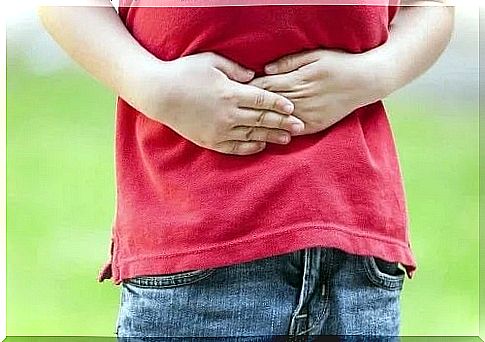
Causes of accelerated peristalsis
- Bacterial infections. The most common bacteria that cause diarrhea are Escherichia coli, Salmonella and also Shigella. The patient may have contracted them by ingesting infested food or water.
- Viral infections. In children, increased peristalsis is caused by the presence of common viruses. Medical monitoring is essential in these cases to avoid dehydration.
- Medicinal substances. Certain medications have side effects, including diarrhea.
- Chronic diseases. Some widespread diseases have symptoms associated with increased peristalsis. For example, we can mention here the dysfunctions of the thyroid gland.
- Psychological origin. The gut responds to stressful situations. This is logical now, because you know that smooth muscle movements depend on the nervous system that sends them stimuli.
- Previous digestive surgery. Those who have undergone gastric or intestinal surgery for various reasons may suffer from changes in peristaltic rhythm either by destroying nerve fibers or by shortening the digestive tract.
conclusions
Peristalsis is a normal and vital bodily function. Without him, you couldn’t live normally. It is responsible for transporting food through the digestive tract and urine through the urinary system.
However, its normal activity may be affected. You should consult your doctor if you notice that you have more or less bowel movements. He will know if it is a temporary change or if it is something that requires specific treatment.
